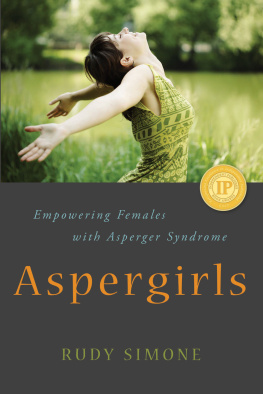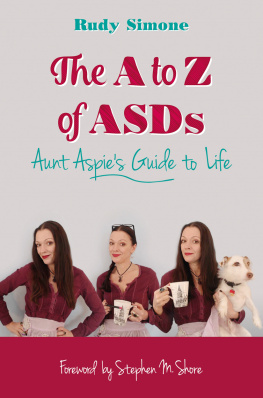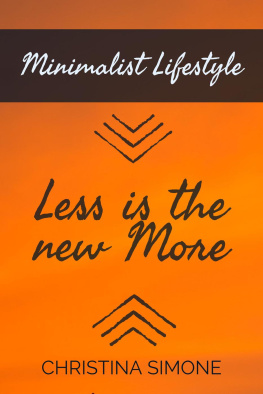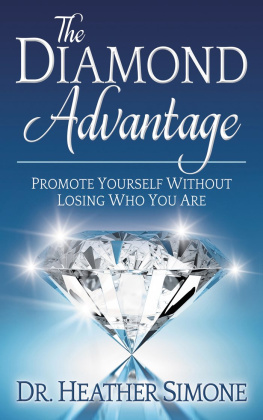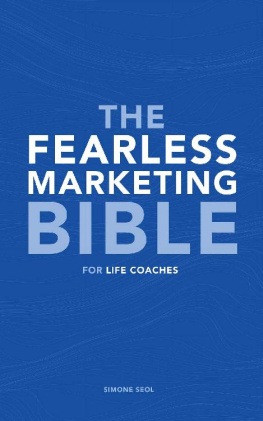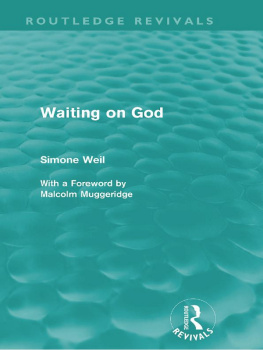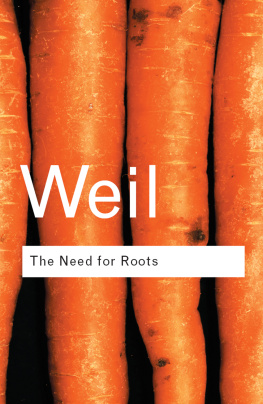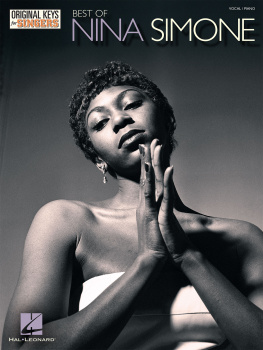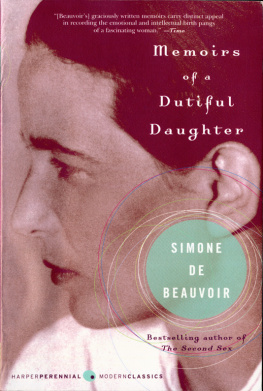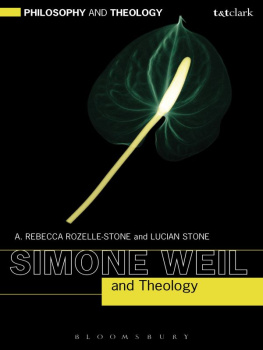
I can highly recommend this book to all Aspergirls and their parents, family, partners and professionals, as well as to all m embers of our community. With humor, love, liking and respect Rudy opens our eyes to the World of the Aspergirl, providing powerful insights on love, learning, sex, career, marriage, having children, friendships, puberty, diagnosis, emotions, health, ageing and more. For each topic there are sections of advice for the Aspergirl and her parents. These sections will also be very helpful to clinicians. For too many years we have missed Aspergirls due to our current understanding of Asperger syndrome being largely based on a male presentation. Rudy generously provides, through deep personal insight and her interviews with other Aspergirls, a broader definition and understanding, one that will help bridge the gap between Aspergirls and the non-spectrum population.
Dr. Michelle Garnett, MPsych(Clin) PhD MAPS MCCP, Clinic Director and Clinical Psychologist, Minds & Hearts: A Specialist Clinic for Aspergers Syndrome and Autism
Aspergirls is an extraordinary read. It is an affirmation of the movement towards understanding AS in females, and a celebration of the culture of AS womanhood. Simone writes with passion, honesty and truthsharing both the challenges and the joys of a womans life on the spectrum through her own observations and the voices of other women. It is rich with stories and strategies to be read and re-read as reminders, mantras and as a map for embarking on the journey of being a woman with AS. Above all, it is a much-needed book about permission, empowerment, and, as Simone so eloquently states, moving beyond the mutism. Bring all your color, girls, and paint the world!
Shana Nichols, PhD, Licensed Psychologist, Researcher and Clinical Director of ASPIRE Center for Learning and Development, and co-author of Girls Growing Up on the Autism Spectrum: What Parents and Professionals Should Know About the Pre-teen and Teenage Years
Aspergirls
by the same author
22 Things a Woman Must Know
If She Loves a Man with Aspergers Syndrome
Foreword by Maxine Aston
Illustrated by Emma Rios
ISBN 978 1 84905 803 2
eISBN 978 1 84642 945 3
of related interest
Girls Growing Up on the Autism Spectrum
What Parents and Professionals Should Know About the Pre-Teen and Teenage Years
Shana Nichols
With Gina Marie Moravcik and Samara Pulver Tetenbaum
ISBN 978 1 84310 855 9
eISBN 978 1 84642 885 2
The Complete Guide to Aspergers Syndrome
Tony Attwood
ISBN 978 1 84310 495 7 (hardback)
ISBN 978 1 84310 669 2 (paperback)
eISBN 978 1 84642 559 2
Aspergirls
Empowering Females with Asperger Syndrome
RUDY SIMONE
FOREWORD BY LIANE HOLLIDAY WILLEY

Jessica Kingsley Publishers
London and Philadelphia
First published in 2010
by Jessica Kingsley Publishers
73 Collier Street
London N1 9BE, UK
and
400 Market Street, Suite 400
Philadelphia, PA 19106, USA
www.jkp.com
Copyright Rudy Simone 2010
Foreword copyright Liane Holliday Willey 2010
All rights reserved. No part of this publication may be reproduced in any material form (including photocopying or storing it in any medium by electronic means and whether or not transiently or incidentally to some other use of this publication) without the written permission of the copyright owner except in accordance with the provisions of the Copyright, Designs and Patents Act 1988 or under the terms of a licence issued by the Copyright Licensing Agency Ltd, Saffron House, 610 Kirby Street, London EC1N 8TS. Applications for the copyright owner's written permission to reproduce any part of this publication should be address to the publisher.
Warning: The doing of an unauthorized act in relation to a copyright work may result in both a civil claim for damages and criminal prosecution.
Library of Congress Cataloging in Publication Data
A CIP catalog record for this book is available from the Library of Congress
British Library Cataloguing in Publication Data
A CIP catalogue record for this book is available from the British Library
ISBN 978 1 84905 826 1
eISBN 978 0 85700 289 1
To Mike W.
Who gave me a different lens to look through
ACKNOWLEDGMENT
I would like to sincerely thank the women who participated in the making of this book, as well as their partners and parents. I was honored by your trust, and I hope Ive done it justice.
FOREWORD
I was not diagnosed with Asperger syndrome (AS) until my daughter was diagnosed. This was almost fifteen years ago. At the time, few people I knew had even heard of pervasive developmental disorders, much less AS. Happily, much has changed since then. These days, I would imagine virtually everyone remotely interested in human behavior or current events has heard of Hans Asperger and his autistic like patients who struggled with non-verbal communication skills, peer interaction, limited but intense interests (and yet, higher than average IQs), strong verbal skills and an awesome ability to recall details and facts. Asperger syndrome is a media darling which shows up everywhere from the red carpet of Hollywood to the smallest school districts special education discussions. Google the termyoull see what I mean. While it is stirring for those of us with AS to see all of this attention being focused in our direction, many of us remain without a formal diagnosis, particularly if we dont have a Y chromosome. Females, from the littlest of girls to the eldest of ladies, continue to fly under the radar of proper diagnosis, eventually landing in worlds where they dont belong. Neuroses, schizophrenia, obsessive-compulsive disorder, personality disorder, oppositional defiant disorder, anxiety issues, social phobiathese are familiar diagnoses for women beyond a certain age who struggle to make sense of the environment, society, relationship rituals and the like. Not that these diagnoses are completely off base. The chances are very good that any mix of those comorbid factors also lay on a ladys genetic code. The problem is many counselors and doctors seem unable to see AS crouching in the middle of the huddle. Why then (many of us ask) does a diagnosis of AS remain a guys thing? Why do researchers still report that AS affects males three to four times more often than it does females, despite top psychologists in the field, such as Tony Attwood, Judith Gould and Lorna Wing, trying to reframe our thinking from AS does not affect females to how can we recognize AS in females? I tend to think part of the reason is straightforward enough. Many women with AS are leery about coming forward with the suspicion they may be an Aspie because, as much as many of us like to say it isnt so, a diagnosis of any kind brings with it a heap of stereotypes and prejudice. Simply put, it is downright difficult to tell the world you are a square peg jamming yourself into societys round hole.
I am in awe every time a woman on the spectrum shares her experiences. I am indebted. And I am relieved to know that each day, more and more Aspie women are joining web forums, small group discussions, and friendship circles, to share advice on how to navigate the neurotypical world map. A voice here or there might not be heard, but the collective voice of women willing and able to sharewow. Thats a loud chorus that cant and wont be ignored. Rudy Simones book, Aspergirls: Empowering Females with Asperger Syndrome , has a lead role in that chorus, and will serve as an important catalyst to encourage contemporary thinkers to have the realization that a significant number of females do, in fact, have AS.
Next page
